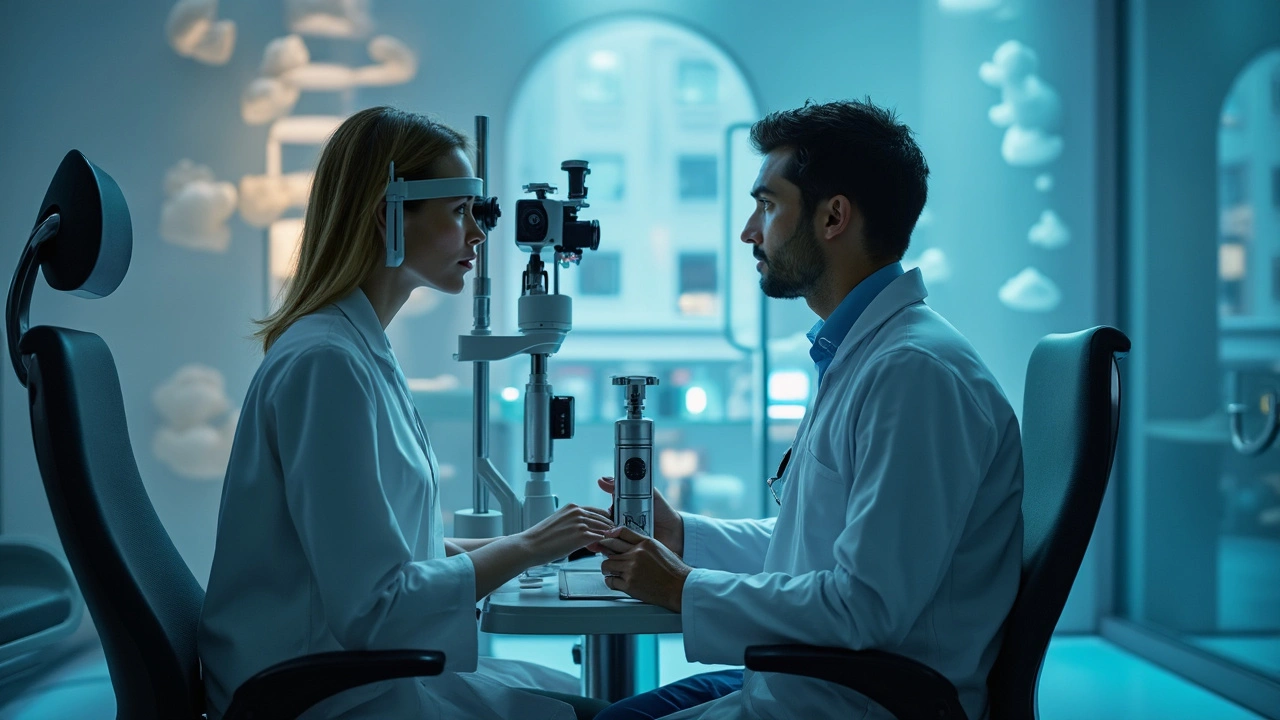Eye Health Tips & Resources – FastIVF
If you spend hours in front of screens or read fine print often, your eyes need a little extra love. This page gathers the best advice on keeping vision sharp without getting into medical jargon. Let’s look at everyday habits that protect your sight.
Common Eye Concerns You Might Notice
Dryness, blurry spots, and occasional itching are signs most people ignore until they become uncomfortable. Dry eye often comes from low blink rates while scrolling on phones. A quick rule of thumb: follow the 20‑20‑20 method—every 20 minutes, look at something 20 feet away for 20 seconds. It refreshes tear production and eases strain.
Redness can also be a reaction to allergens or contact lens buildup. Swapping out old lenses every month and cleaning them with proper solution cuts down irritation. If you see halos around lights at night, it could hint at early cataract changes; an eye doctor check‑up is the safest step.
Boost Your Vision Naturally
Nutrition plays a big role in ocular health. Foods rich in omega‑3 fatty acids—like salmon or walnuts—support the retina’s cell membranes. Vitamin A from carrots, sweet potatoes, and leafy greens helps maintain a clear cornea, while lutein and zeaxanthin found in kale and eggs protect against blue‑light damage.
Supplements are handy when diet falls short. Look for eye‑specific formulas that list DHA, lutein, and zinc together; these combos have been linked to slower age‑related macular degeneration progression. Always pick a reputable brand—our site reviews several online pharmacies so you can buy safely if you decide to try a supplement.
Beyond food, protecting your eyes from UV rays is essential. A pair of sunglasses that block 100% UVA and UVB light reduces the risk of cataracts and macular issues. Even on cloudy days, UV exposure matters, so keep them handy.
Regular eye exams are the backbone of good eye health. Most adults need a check‑up every two years; people with diabetes or a family history of glaucoma should see an optometrist annually. Early detection of pressure spikes or retinal changes can prevent permanent vision loss.
If you wear glasses, update your prescription regularly. An outdated lens forces the eyes to work harder, leading to headaches and fatigue. Many online services offer quick refills; just verify they require a valid prescription first.
Lastly, give your eyes a break from screens before bedtime. The blue light emitted can disrupt sleep patterns and strain ocular muscles. Turning on night mode or using a blue‑light filter glass helps you wind down without sacrificing screen time.
Keeping your vision healthy doesn’t need expensive gadgets—just consistent habits, proper nutrition, and routine check‑ups. Use the tips above to protect your eyes today, and revisit this page whenever you need a quick refresher on eye care.

Understanding Open-Angle Glaucoma and Visual Field Testing
Open-Angle Glaucoma is a sneaky eye condition that can affect your vision without warning. Visual field testing plays a crucial role in detecting its presence and progression. By understanding the testing process, those at risk can take proactive steps in managing their eye health effectively. This article provides a practical guide to these tests and tips for preserving your sight.